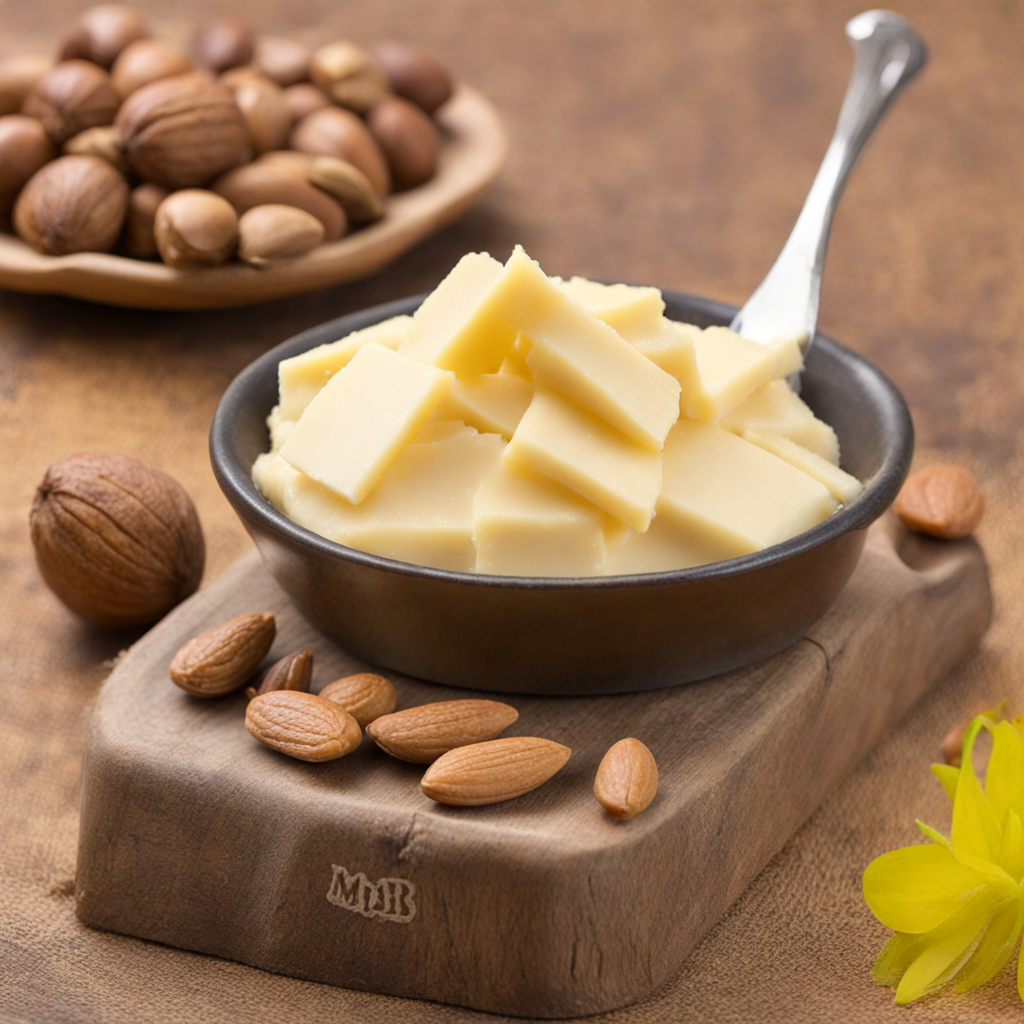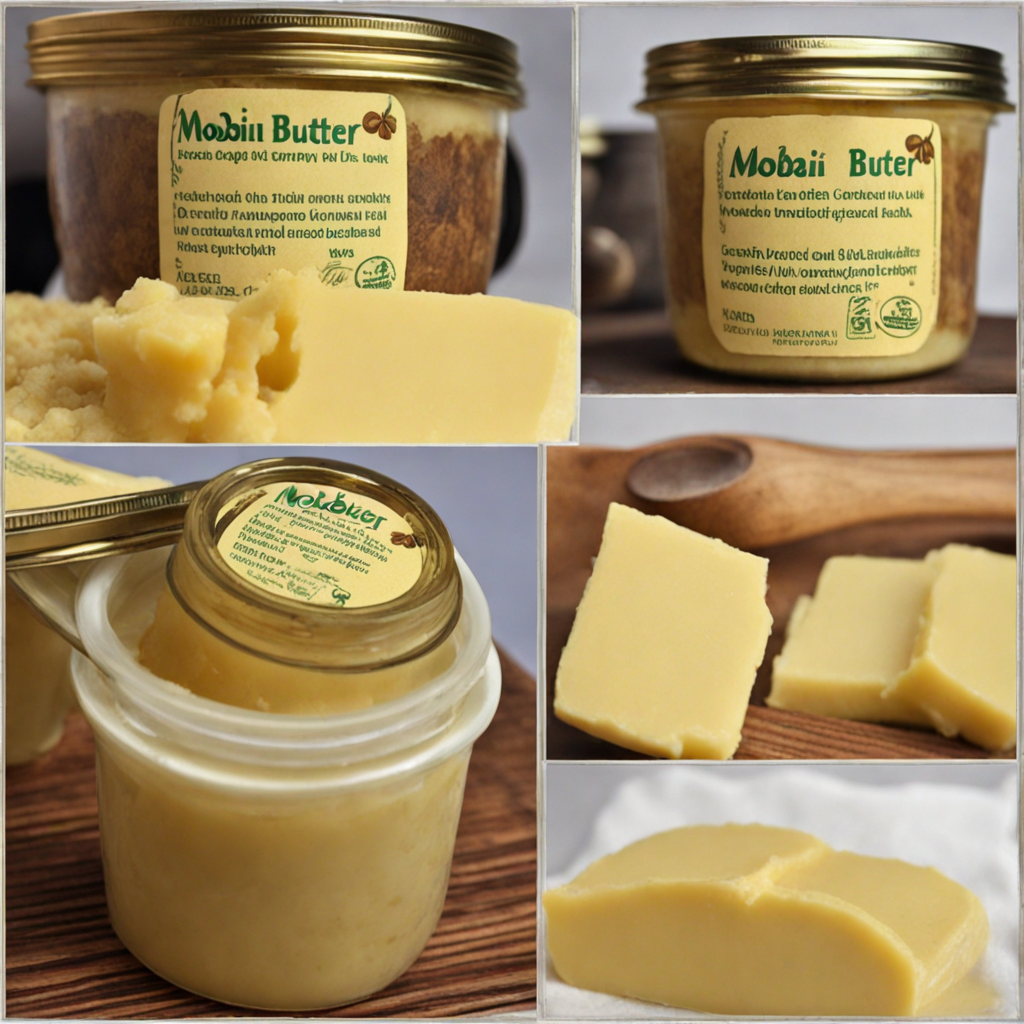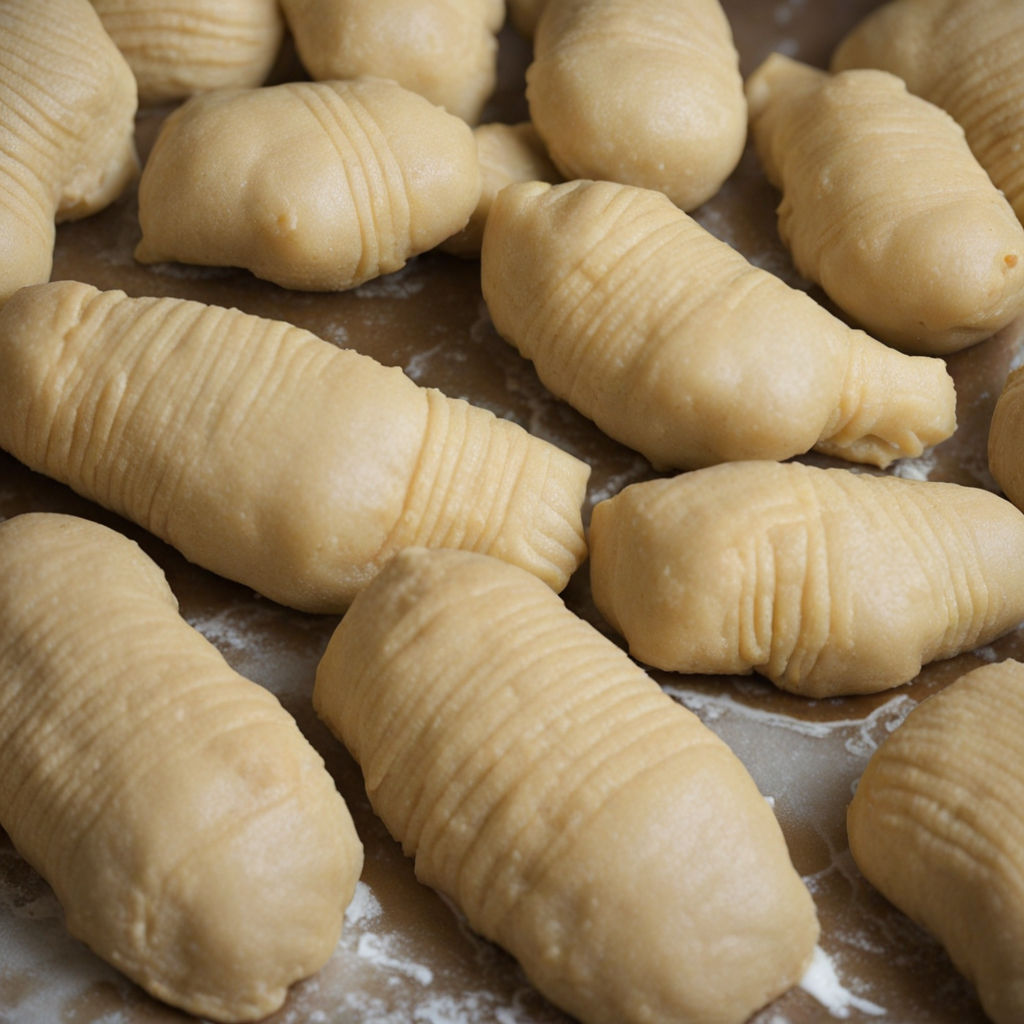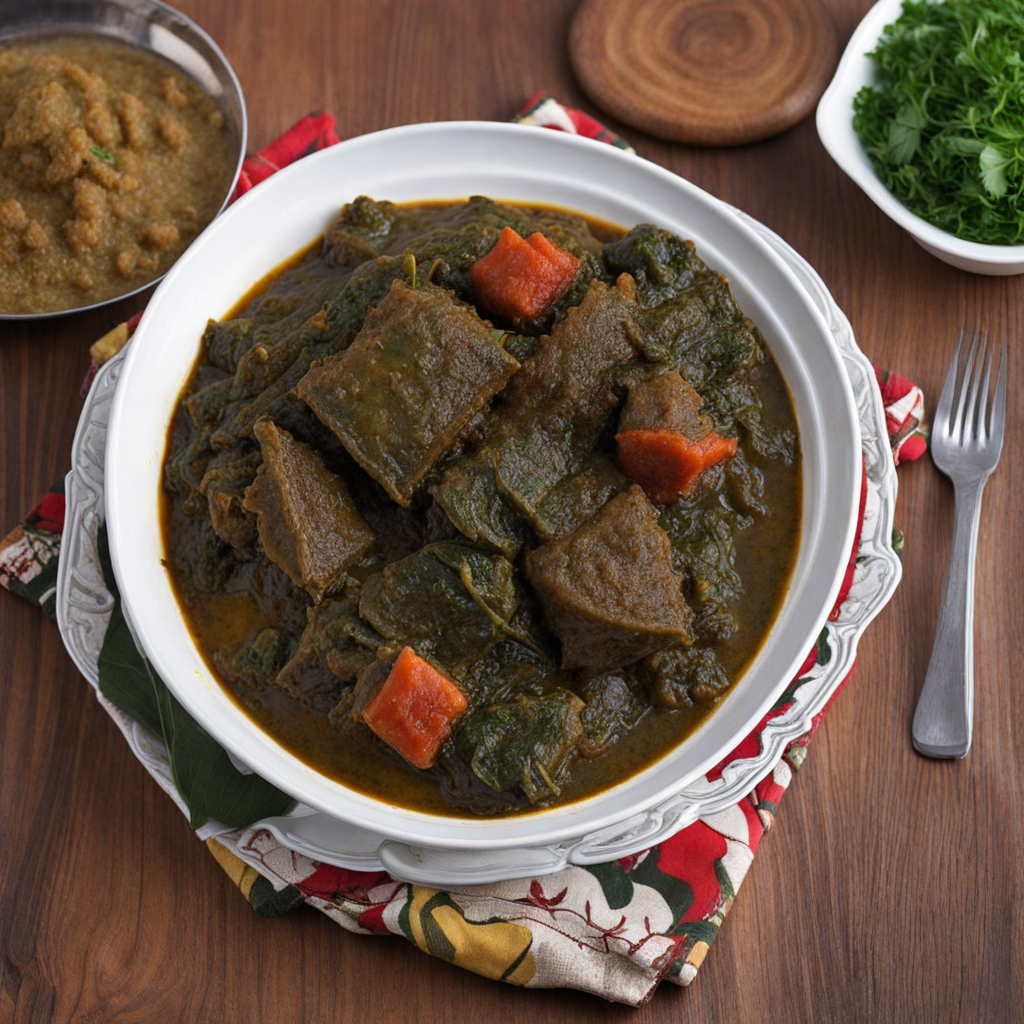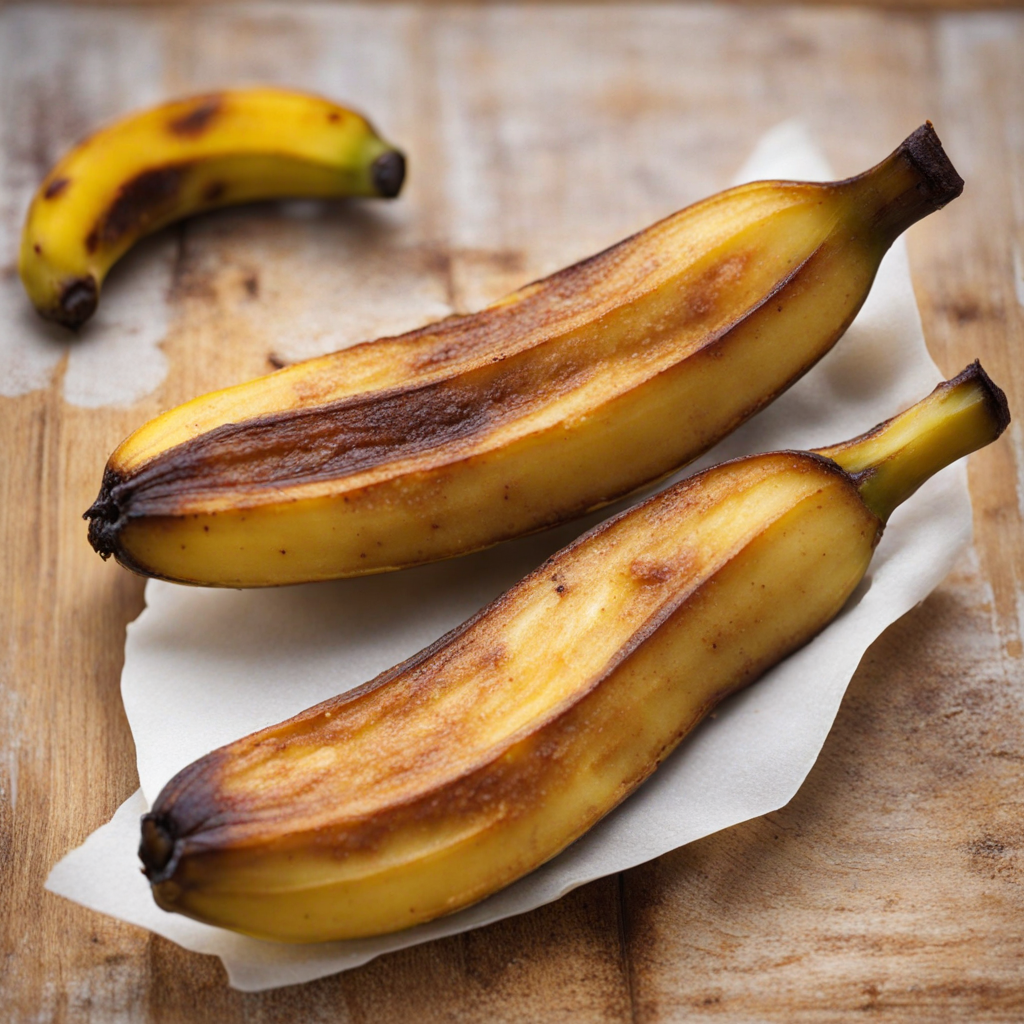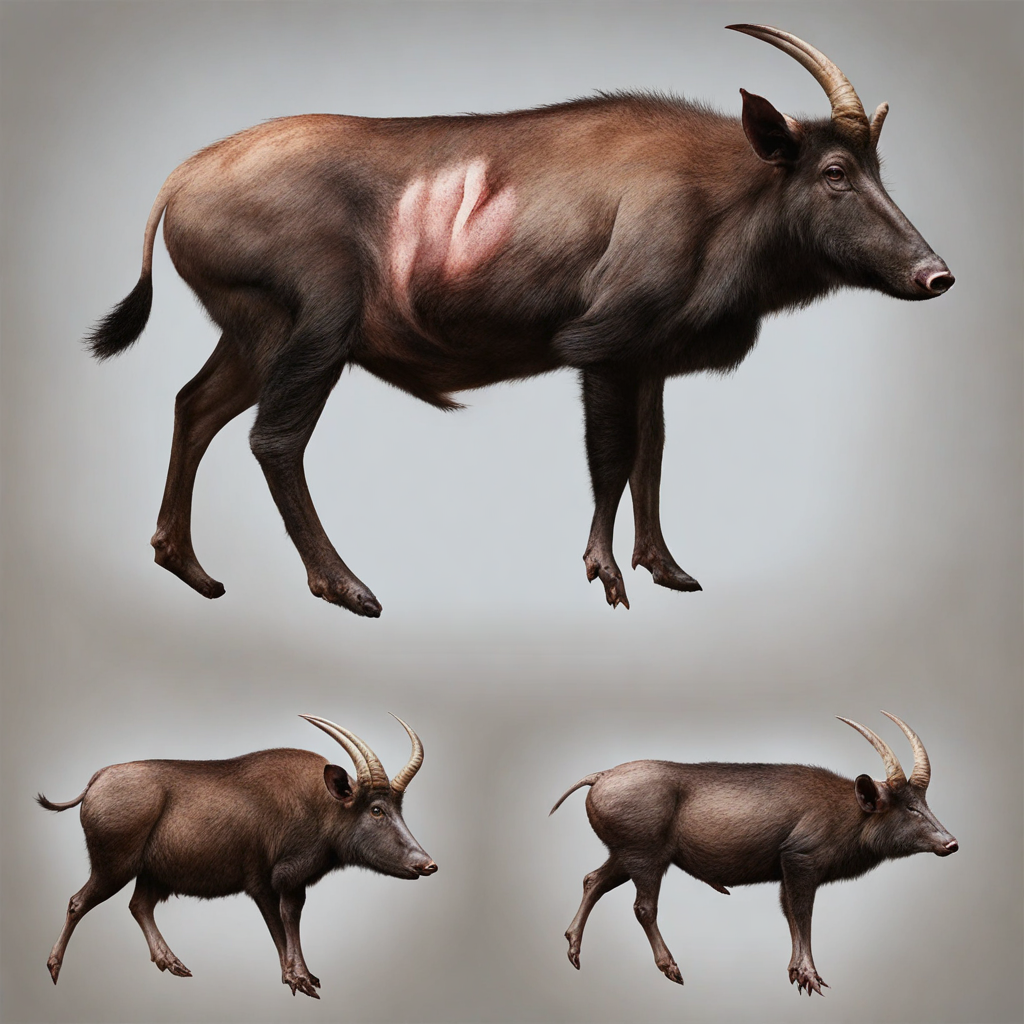Moabi Butter
Moabi Butter is a unique and traditional ingredient from Gabon, derived from the nuts of the Moabi tree, scientifically known as Baillonella toxisperma. This rich, creamy butter has a deep, earthy flavor profile that makes it a distinctive addition to various dishes. The process of extracting the butter is labor-intensive, involving the collection of ripe nuts, which are then roasted and ground to release their oils. The resulting product is not only delicious but also packed with nutrients, making it a wonderful source of healthy fats, vitamins, and minerals. In the culinary world, Moabi Butter offers a versatile ingredient that can be used in both sweet and savory recipes. Its flavor is often described as a mix of nutty and slightly sweet, lending itself beautifully to sauces, dressings, and even baked goods. When used in traditional Gabonese dishes, it enhances the natural flavors of local ingredients, providing a creaminess that balances spices and herbs. The butter can also be spread on bread or used as a cooking fat, making it a fantastic alternative to more common options like olive oil or butter. Beyond its culinary uses, Moabi Butter carries cultural significance in Gabonese society, often associated with communal meals and celebrations. Its production and use reflect the deep connection between the people and their environment, showcasing the importance of indigenous ingredients. As food enthusiasts explore new tastes, Moabi Butter provides an opportunity to experience the rich culinary heritage of Gabon, inviting the palate to discover something truly special and authentic.
How It Became This Dish
The Rich History of Beurre de Moabi: A Culinary Treasure from Gabon #### Origins: Nature's Gift from the Forest Beurre de Moabi, often referred to as Moabi butter, is a traditional food product derived from the nuts of the Moabi tree (Baillonella toxisperma), native to the tropical forests of Central and West Africa, particularly Gabon. This tree, which can reach heights of up to 50 meters, plays a significant role in the ecosystems it inhabits, providing habitat and sustenance to various wildlife and human communities alike. The Moabi tree produces large, edible nuts that are encased in a hard shell. The extraction of the nuts is a labor-intensive process, requiring skilled hands to crack open the hard exterior to reveal the nutritious seeds within. The nuts are then roasted and ground into a paste, which is further processed to yield a creamy, rich butter that is both aromatic and flavorful. This method of preparation reflects the deep-rooted knowledge of the local communities regarding their environment and the resources it provides. #### Cultural Significance: A Staple in Gabonese Life In Gabon, Beurre de Moabi is not merely a food item; it is a cultural symbol intertwined with the social and economic fabric of the communities that rely on it. The consumption of Moabi butter is deeply embedded in the culinary traditions of Gabonese people. It is often used as a cooking fat, a flavor enhancer in various dishes, or simply spread on traditional breads, showcasing its versatility. The Moabi tree also holds spiritual significance. It is considered a sacred tree in many indigenous cultures, often associated with various rituals and ceremonies. The gathering of Moabi nuts is typically a communal activity, fostering social bonds among community members. This communal gathering is often accompanied by storytelling, music, and dance, further enriching the cultural experience and ensuring the transmission of traditional knowledge from one generation to the next. The rich, savory flavor of Beurre de Moabi has made it a beloved ingredient in traditional Gabonese cuisine. It is frequently incorporated into dishes such as "saka-saka" (cassava leaves cooked with groundnut paste), stews, and fish dishes, enhancing their taste and nutritional value. The butter is also prized for its high-energy content, making it a vital source of sustenance for many communities, particularly in rural areas. #### Development Over Time: From Tradition to Modernity As globalization has spread its influence across the globe, traditional foods like Beurre de Moabi have begun to find new audiences beyond their regions of origin. The growing interest in natural, organic, and traditional foods has led to a renewed appreciation for Moabi butter, not only in Gabon but also in international markets. In recent years, there has been an increasing demand for Beurre de Moabi among health-conscious consumers and gourmet chefs who seek authentic flavors for their culinary creations. The nut’s high-fat content, rich in unsaturated fats, vitamins, and antioxidants, positions it as a desirable alternative to other more common fats like butter or margarine. As a result, Moabi butter has been featured in various artisanal food products, blending traditional methods with modern culinary innovation. The rise of ecotourism in Gabon has also contributed to the resurgence of interest in Beurre de Moabi. Tourists are often eager to experience local culture and cuisine, leading to the promotion of traditional foods as part of the cultural heritage. Local producers and cooperatives have begun to market Moabi butter as a specialty product, emphasizing its traditional roots and sustainable harvesting practices. These initiatives not only support local economies but also encourage the preservation of the Moabi tree and its ecosystems. Moreover, the recognition of Beurre de Moabi as a valuable resource has spurred research into its potential health benefits and its role in sustainable agriculture. Scholars and food scientists are exploring the nutritional properties of the nuts, along with the ecological importance of the Moabi tree in combating deforestation and promoting biodiversity. #### Challenges and Sustainability: Preserving Tradition in a Changing World Despite its growing popularity, the future of Beurre de Moabi is not without challenges. The Moabi tree is classified as a "vulnerable species" due to habitat loss, deforestation, and unsustainable harvesting practices. As demand increases, there is a pressing need to ensure that the harvesting of Moabi nuts is conducted sustainably, balancing economic benefits with environmental conservation. Local communities are increasingly aware of the importance of sustainable practices, and many are engaging in initiatives to protect the Moabi tree and its habitat. This includes reforestation projects, sustainable harvesting techniques, and the establishment of community-managed reserves where the trees can thrive. By prioritizing sustainability, these communities aim to preserve not only the Moabi tree but also the cultural heritage associated with Beurre de Moabi. Furthermore, education plays a crucial role in promoting the sustainable use of Moabi resources. Programs aimed at teaching local populations about the ecological significance of the Moabi tree, along with best practices for harvesting and processing the nuts, are vital for ensuring the longevity of this culinary treasure. #### Conclusion: A Taste of Tradition and Innovation Beurre de Moabi is more than just a food item; it embodies the rich cultural heritage of Gabon, reflecting the interplay between nature, community, and culinary tradition. As it evolves from a local staple to a sought-after product on the global stage, there lies an opportunity to celebrate and preserve the traditions surrounding Moabi butter while adapting to contemporary tastes and practices. The future of Beurre de Moabi rests on a delicate balance between honoring its traditional roots and embracing modernity. By fostering sustainable practices, supporting local economies, and promoting the cultural significance of this unique product, the legacy of Beurre de Moabi can continue to thrive for generations to come, offering a taste of Gabon’s rich heritage to the world.
You may like
Discover local flavors from Gabon


